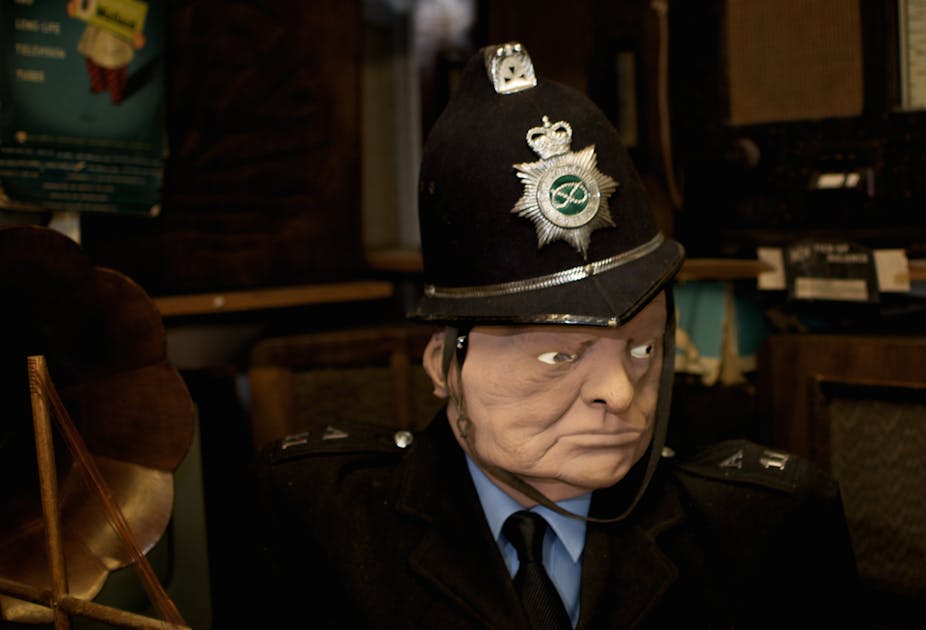For the past five years, the British government has been cutting funding for the police. Police numbers have fallen by 10% since 2010, leaving forces around the country struggling.
There was great relief in November when the government decided to protect police funding in real terms. However, this new settlement also means more of a police force’s budget will be raised through local taxation. It also doesn’t resolve the considerable uncertainty caused by the previous cuts.
Faced with diminished local protection, some communities have already taken action to increase policing provision privately. A particularly significant example is Frinton-on-sea in Essex, where residents hired a private security firm. Frinton is a low-crime area but funding cuts mean the nearest police station will close. Local residents each agreed to pay £100 a year so a private security firm can patrol the streets at night.
This is a model that is not likely to go away, particularly as police commissioner elections approach in May. Candidates are likely to be seen campaigning on promises of cutting spending and bringing in new innovations. In general, the private policing option is an innovation that should be of concern. Here are five reasons why:
1. Who’s in charge?
A private security company polices but that doesn’t make it police. Employees will inevitably face dilemmas on the job, which raises a host of questions. Will security guards have powers of arrest or the power to detain people? Can they search people or use force? Will knowledge of the law will they have? Can they gather evidence robust enough to withstand court scrutiny?
Doing policing well is one of the most complicated jobs you can imagine. Not only do you have to deal with all kinds of social issues, you also have unparalleled powers. It involves grappling with dilemmas exercising discretion. There are often no right answers. Policing well is not just a case of knowing the law and understanding the tactics, you also need to develop on-the-job experience. There is rich institutional memory and knowledge – a lot of that knowledge comes from others.
It’s not at all clear how much time and money would be spent on training private police forces, nor how they could replicate the experiences that combine to train a police officer on the job.
2. Lost link to the community
Though local funding might imply a greater connection, in practice having privately funded officers breaks a very important link between policing and the general public. The police are the public and the public are the police. That’s a fundamental principle. They are members of the public paid to give their full attention to duties that are actually incumbent on every citizen.

Private funding breaks that Peelian model – security guards are employees of businesses. That means they are not necessarily to be expected to focus on serving the public good over the interests of their paymasters.
3. A face on the street
Privatisation could make it harder to gather the intelligence that is crucial to make neighbourhoods safer. The public will not have a clear understanding of the roles and responsibilities of these guards. They may not even be able to recognise who they are. That means they could be less likely to report crimes and concerns or to interact with them more generally. This type of communication is vital for collecting information on all sorts of matters, from terrorism to local tensions.
4. Who cares?
Much police work involves caring for people in desperate circumstances – runaways and people experiencing severe mental health crises, to name just a few. The police are often what is left when all other services fail.
Private security may displace rather than stop crime. If a wealthy suburb can subsidise regular patrols and its neighbour can’t, trouble could simply switch locations. Privatisation will mean that instead of one national institution comprising 43 richly connected forces with a common history, potentially hundreds of new borders and boundaries will be established, which could cause havoc. Firms will jostle to compete for business and territory, which is not good for the public.
5. It won’t save money
It is not clear privatising policing will even save money. The police will still be left holding the responsibility for any mistakes and errors and the public purse is being left significantly exposed to the threat of miscarriages of justice.
During this crisis for policing – and it remains a crisis – communities thinking of hiring their own private police, or those seeking policing on the cheap need to think carefully about the wider implications before splashing out.

